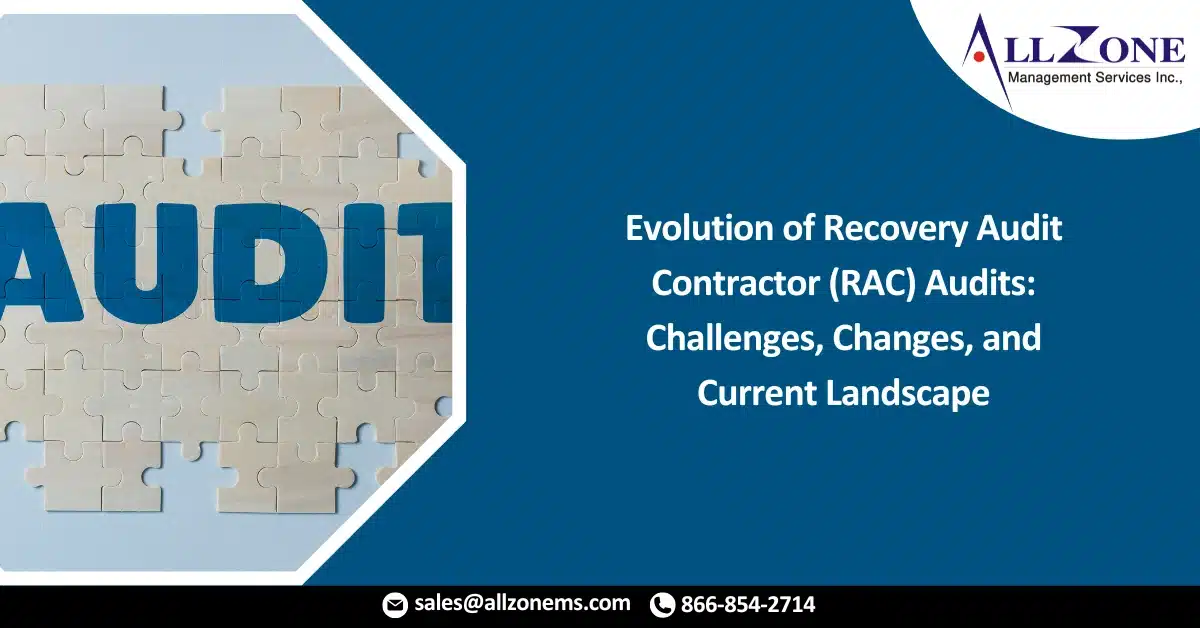The inception of Recovery Audit Contractor (RAC) audits dates back to 2005, reaching their zenith around 2010 before encountering a deceleration amidst the COVID-19 period. In 2006, Congress granted the Centers for Medicare & Medicaid Services (CMS) the authority to launch the Recovery Audit Contractor program across three initial states: New York, Florida, and California.
These audits initially concentrated on identifying erroneous coding, service duplications, fraudulent activities, and more. Subsequently, Arizona, Massachusetts, and South Carolina became part of the initiative in 2007, with Congress extending the RAC program nationwide in 2010.
The issues are well-known to everyone
As the RAC program expanded across the nation, it posed three significant challenges that providers struggled to surmount:
Providers encountered a trio of formidable hurdles with the nationwide rollout of the RAC program:
- Overly aggressive RACs: RAC audit fees, funded by the Centers for Medicare & Medicaid Services (CMS), operated on a contingency fee basis. This setup meant that the higher the amount denied and “recovered,” the greater the fees collected by the RACs. Consequently, this incentivized RACs to adopt an assertive audit stance, particularly targeting hospitals with high-value claims.
- More paperwork, less time: The sudden influx of medical record requests caught most providers unprepared, leading to delayed or denied submissions due to the inability to respond promptly. This inundation resulted in a shortfall in meeting submission deadlines.
- Overwhelmed appeals process: The surge in provider claims inundated the Medicare appeals process across all levels, causing significant delays in response times. The appeals system struggled to keep pace with the rapid increase in appeals, resulting in prolonged waiting periods for resolution.
Amid the myriad issues plaguing providers during the Recovery Audit Contractor audit process, change became an inevitable necessity, leading to a slowdown in RAC audits. The reasons behind this shift are varied and conflicting, yet the Centers for Medicare & Medicaid Services (CMS) notably scaled back the frequency of Recovery Audit Contractor audits and the volume of document requests in the mid-2010s. However, this adjustment wasn’t without its uncertainties regarding whether the system truly rectified itself.
Initially, the introduction of Recovery Audit Contractor audits inundated providers with an unmanageable deluge of audit requests from payors. Subsequent alterations purportedly aimed to reduce audits and paperwork, ostensibly allowing hospitals to redirect focus toward a broader spectrum of payor audits. However, verifying the veracity of these claims might prove challenging, especially according to the experiences of my clients.
Despite efforts to streamline, review contractors annually issue approximately 2 million requests for medical documentation and records to healthcare providers. Regrettably, fulfilling these requests often involves cumbersome manual processes. The substantial volume of this activity underscores glaring workflow gaps and inefficiencies, with the process remaining up to 90 percent reliant on manual labor and susceptible to data quality issues.
The prevailing inefficiencies in hospital finance departments across the nation are further compounded by tightened labor markets and a scarcity of team members. This diminished workforce handling the same workload heightens the vulnerability to errors.
In 2018, CMS reintroduced the Recovery Audit Contractor audit program with revamped regulations and guidelines. The primary modifications included:
- Limiting the volume of documents a RAC could request within a specified timeframe, resulting in fewer audits with a reduced number of document requests per audit.
- Increased willingness from CMS to participate in mass settlements due to the overwhelming backlog in the appeals process, aiming to expedite resolution times.
These pivotal changes facilitated the resumption of Recovery Audit Contractor audits with a lesser degree of chaos. The audits proceeded normally until they paused in March 2020 following the declaration of a national health emergency due to the COVID-19 pandemic. After a brief hiatus, RAC audits resumed in August 2020 and have persisted to date.
Presently, the landscape reflects a modified state compared to the intrusive nature of RACs in 2006. However, they remain somewhat intrusive, and undergoing an audit remains an arduous process at best. Notably, RACs do not receive 13.5-percent contingency fees until the appeals process concludes.

